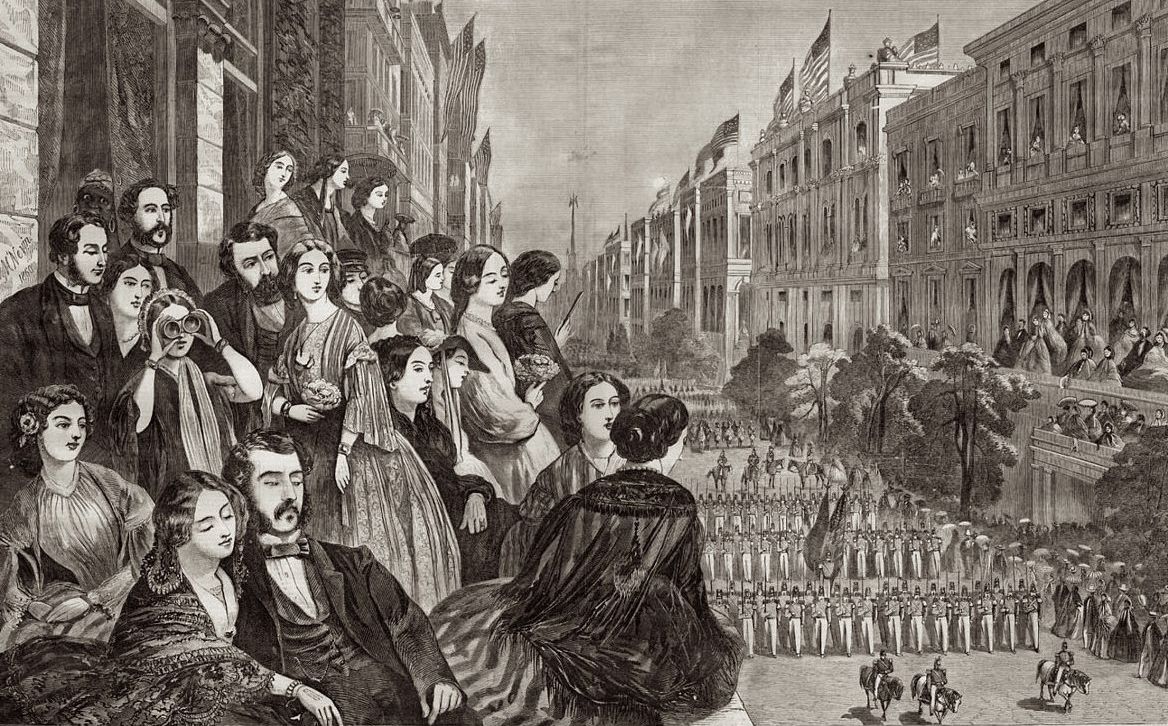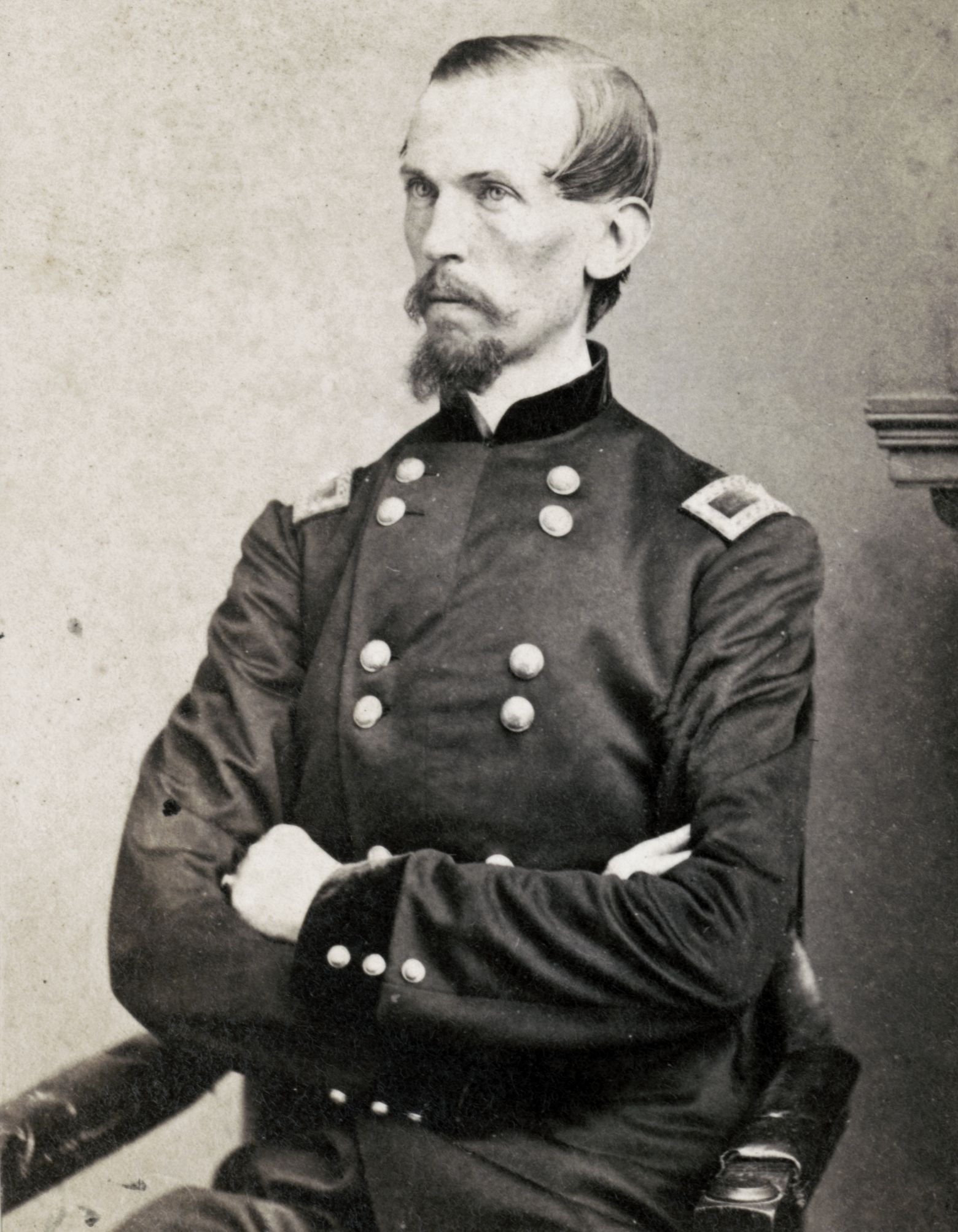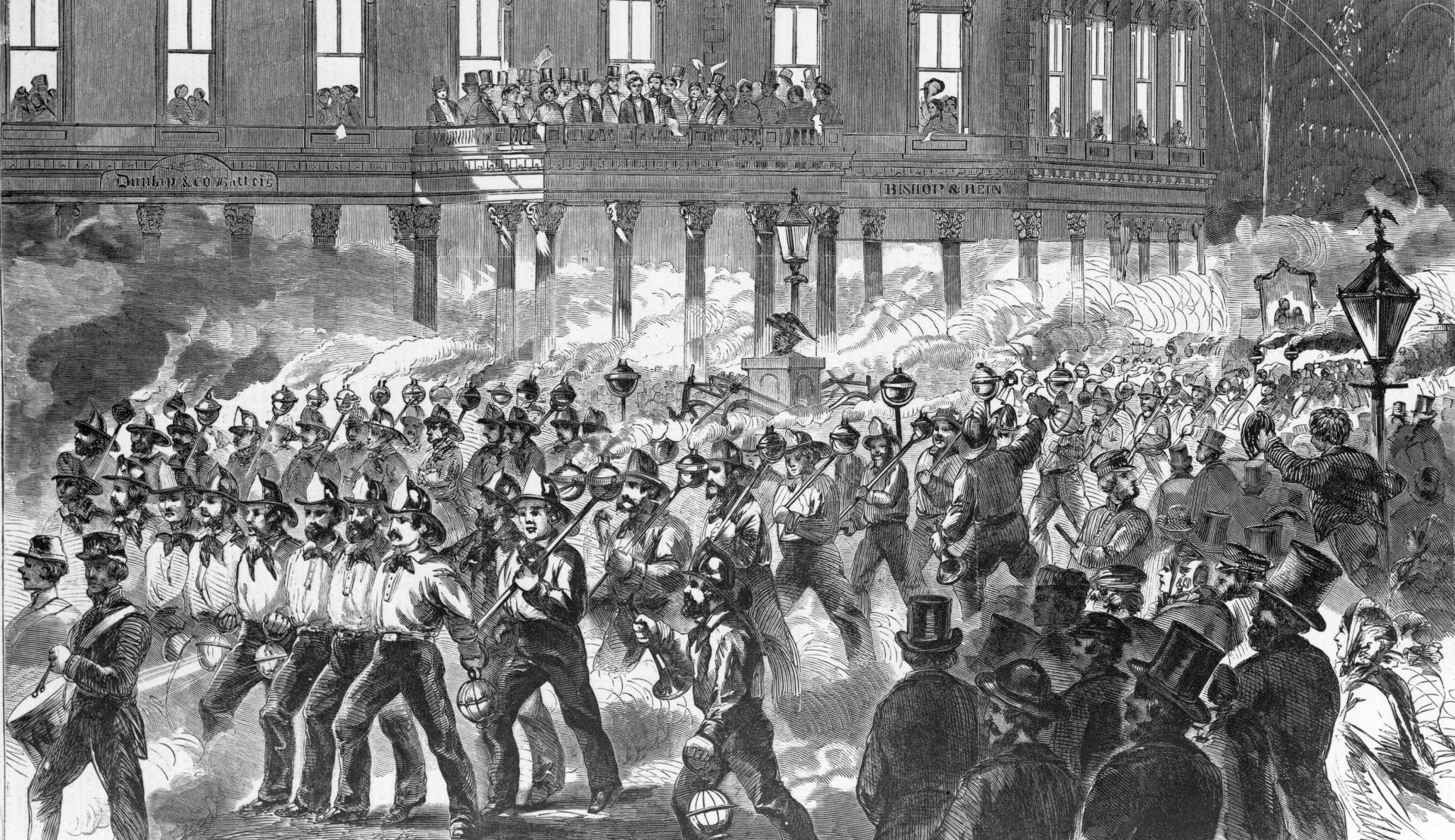Authors:
Historic Era: Era 5: Civil War and Reconstruction (1850-1877)
Historic Theme:
Subject:
November/December 2024 | Volume 69, Issue 5


Authors:
Historic Era: Era 5: Civil War and Reconstruction (1850-1877)
Historic Theme:
Subject:
November/December 2024 | Volume 69, Issue 5

It was the biggest event in recent memory for New York City, and the “metropolis of the New World” outdid itself to honor the Prince of Wales, Queen Victoria’s oldest son, in the first visit to America by a member of the British royal family.
On October 11, 1860, more than 200,000 people turned out on a splendid autumn afternoon in Manhattan for a parade in the prince’s honor, turning Broadway into what one observer called “one vast trough of humanity, animated, glittering, good-natured, and bent on making the best of all possible greetings to the coming Prince.” Union Jacks fluttered, and bands played “God Save the Queen.” New York militia regiments marched in review before the prince. As each unit passed, its commander saluted the future King of England.

Only one thing was missing. Colonel Michael Corcoran and the New York militia’s 69th Regiment had defied orders and refused to march. Most of the men in that regiment, including Corcoran, had been born in Ireland. They were strident Irish nationalists and steadfast foes of the British monarchy. Corcoran believed that he could not in good conscience order these Irish-born soldiers to march in honor of the son of “a sovereign under whose reign Ireland was made a desert and her sons forced into exile.”
There would be consequences for this defiance, and it would be only the start of the controversies that would shadow Corcoran for the rest of his military career.
Born in County Sligo, Ireland, in 1827, Corcoran was the son of a former British Army officer. In 1846, he joined the country’s police force, the Royal Irish Constabulary. Ireland was in the grips of a famine that killed more than a million people and drove thousands more to emigrate to America. While on duty in County Donegal, Corcoran saw depots packed with cattle and grain. These provisions could have helped feed his starving countrymen, but the British had reserved them for shipment to England.
This radicalized Corcoran, and he left the constabulary to join the Ribbonmen, a secret society that terrorized British landlords. His activities caught the attention of the authorities, and he fled to America in 1849, one step ahead of the constable.

Like the more than 150,000 other Irish who came to the United States that year, Corcoran sought opportunity, and America,